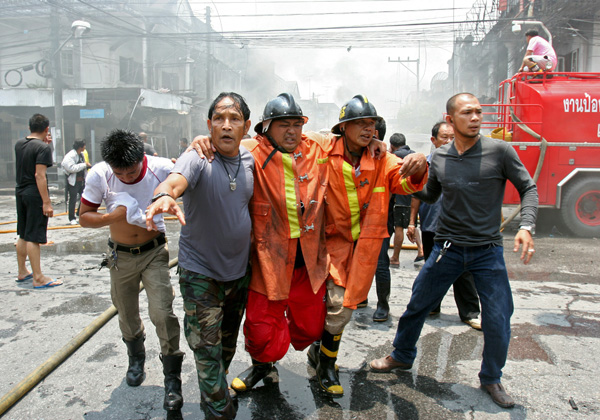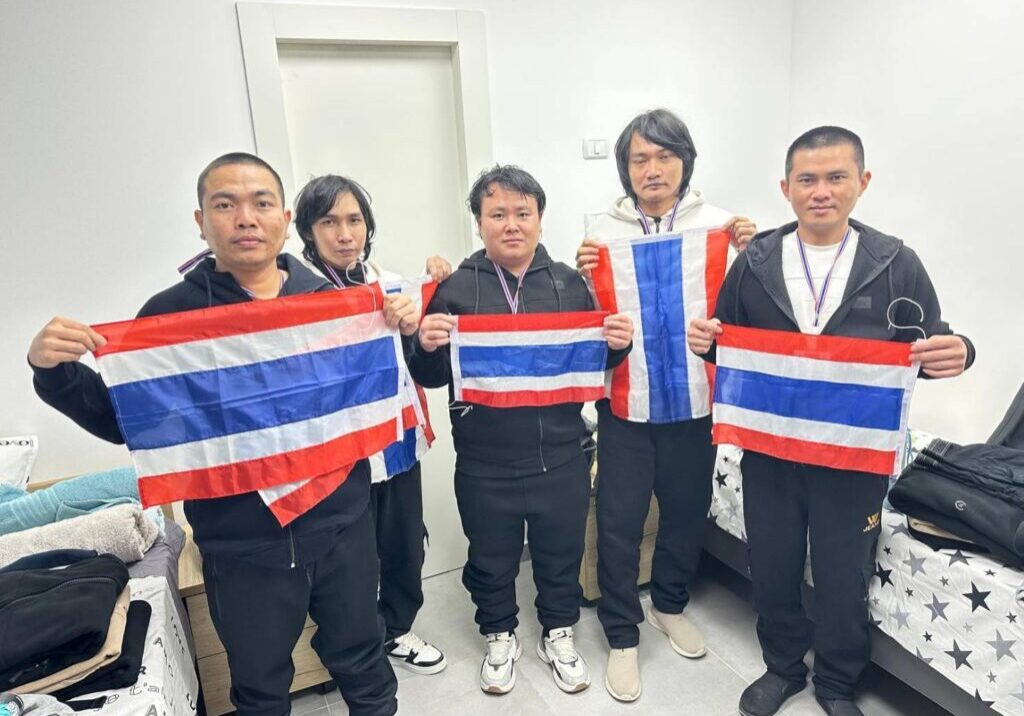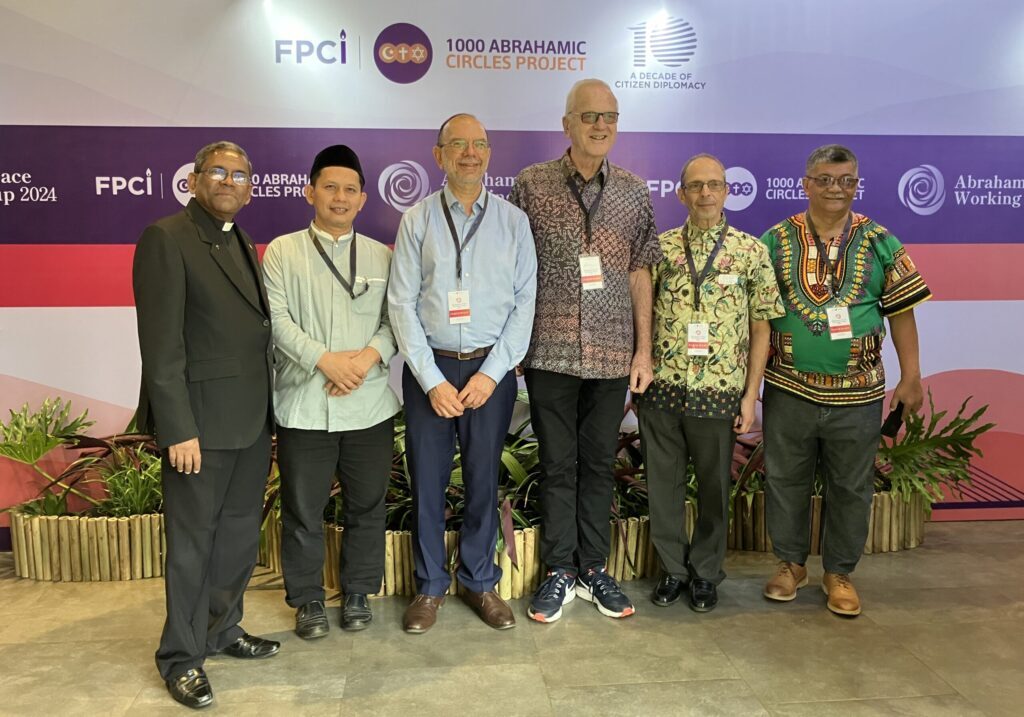Australia/Israel Review
Thailand’s slow-burn insurgency heats up
Apr 26, 2012 | Zachary Abuza

Zachary Abuza
On March 31, a series of coordinated bombings, the likes that have not been seen since 2007, rocked the Southern Thai cities of Yala and Hat Yai. In Yala, a car bomb and two motorcycle bombs detonated ten minutes apart on a crowded street, killing 11 and wounding 106; ten were in critical condition. In Hat Yai, a pickup truck loaded with two 15 kilogram gas tanks packed with ammonium nitrate was detonated while parked in the underground garage of the largest hotel in the city, killing three and wounding over 300.
These attacks were spectacular and garnered both domestic and international media attention. While a wakeup call to the international community and the Thai political elite, the attacks do not portend the insurgency entering into a new stage, but rather they are a reminder of a conflict that is now in its ninth year; a slow-burn insurgency in the heart of prosperous Southeast Asia, which has claimed the lives of 5,100 people, wounded approximately 9,000 in more than 11,000 incidents of violence.
The attacks were an exclamation point on what was already a statistically more violent month. Fifty four people were killed in March 2012 and just under 500 wounded. Since January 2009, only one month (September 2009) has had a higher death toll. This was significantly above the average death toll in the first two months of 2012 of 24, and a sharp rise over the monthly averages in 2009 (36.5), 2010 (25.3), and 2011 (30). There were 16 bombings – well above both the 2012 average of nine and the 2011 average of 14. In addition, there were five bombs that were defused. There were seven incidents of arson including six nearly simultaneously in three separate districts of Pattani. In the seventh incident, a government building was burnt to the ground. There were two attacks on hardened army or ranger posts, and three prolonged firefights.
Since January 2009, over 1,200 people have been killed and 2,700 wounded. In that time 102 soldiers have been killed (an average of 5.25 a month) and 508 wounded (an average of 25 a month), 57 police killed and 257 wounded, 173 rangers or defence volunteers killed and 249 wounded, 104 village headmen or their deputies killed and 78 wounded, 750 civilians killed and 1,544 wounded, 31 teachers killed and 18 wounded, four monks killed and eight wounded. There have been over 480 successful bombings not including nearly 60 failed or defused IED attacks and some 96 separate grenade attacks. A sad but relatively unknown fact is that in the past five years there have only been more IED attacks on an annual basis in two countries: Afghanistan and Iraq. Disturbingly, militants have increased their use of time delayed secondary bombs to target security forces and first responders. In that time, 87 suspected militants have been killed and 237 arrested, but it has had no discernible impact on the level of violence.
One disturbing trend has been greater confidence on the part of the militants in engaging in sophisticated attacks on hard military targets. Since January 2009, there have been 46 raids, an average of just over one per month. Not only have these attacks been successful, in terms of killing security forces and capturing weapons, they have exposed real weaknesses and incompetence within the Royal Thai Army (RTA). For example, in January 2011, insurgents attacked a remote army base, killing four soldiers, including their commander, and wounding 13 others. They made off with at least 20 small arms and assault rifles. In March 2012, an estimated 50 militants attacked a remote military outpost in Narathiwat’s Bacho district with M79 grenades and assault weapons, wounding 12 soldiers. The firefight lasted 20 minutes before the militants retreated. The same day they took over a Ranger outpost, executing two and making off with seven weapons.
The violence has little to do with who is in power in Bangkok, despite each successive government’s pledge that they will end the conflict. Though the insurgency got started under Thaksin Shinawat’s rule, violence soared following the September 2006 coup, peaking in mid-2007. Though violence fell in 2008, following the Democrat Party’s assumption of power in December 2008 – a party whose electoral base encompasses the deep south – violence climbed in 2009, and has remained stubbornly persistent since then.
The mid-2011 electoral victory of Thaksin’s younger sister Yingluck Shinawatra – who won a landslide everywhere but the deep south – had no impact on the rate of violence. In short, since the coup, no government has either wanted to hold the military accountable for the south or put in place policies that the military strongly objects to. The easiest decision is to let the military continue with its half-hearted measures.
So what is the government doing to ameliorate the violence? Sadly very little. Countless things have been promised to the southerners but little has actually been implemented. Plans to make Malayu the working language have never been operationalised. The security forces, operating under the 2005 Emergency Decree, have blanket immunity. Not one official or member of the security forces has been convicted of wrong doing, despite ample evidence compiled by human rights activists of abuses and extra judicial killings.
There is some evidence that the culture of immunity is starting to be challenged. In March 2012, an independent commission concluded that a group of paramilitary rangers had mistakenly shot dead four Muslim villagers. The Government announced that it would allow the rangers to be indicted and stand trial. The 4th Army commander Lt. General Udomchai Thammasarorat pledged, “If the court finds them guilty and sentence them to imprisonment, we will accept the court decision.” But rangers are expendable.
Sadly the legal front has perpetuated the violence. Under the Emergency Decree, suspected militants can be held for 28 days without charge. Due to the incompetence of the police or simply their inability to garner evidence, over 90% of the suspects are released. Of those that stand trial, up to mid 2011, the acquittal rate was 43%. This has infuriated the army, which both lessened their already questionable willingness to work with the police and encouraged them to engage in extra-judicial killings, fuelling local anger over security forces’ impunity.
Bangkok’s chattering class is currently abuzz with allegations that former Prime Minister Thaksin held talks with militants in Malaysia. The opposition Democrat party is trying to hold parliamentary hearings about this, though when in power they too attempted negotiations. Talks should take place, but what is lost in this debate is that for years, the people who have represented themselves as the militants have had absolutely no control over those perpetrating the violence. They are pretenders to the cause and older generations of separatists who have no influence over the younger hardline insurgents.
What people fail to understand is that the militants have little incentive to negotiate. They are not losing and their back is not up against the wall. They are accomplishing their short term objectives: making the region ungovernable, eliminating moderate Muslims and political rivals, sowing distrust between the people and the state, forcing people into parallel Muslim social service providers and schools, convincing people that the state is unable to protect them, and driving Buddhists from the region. And the Thai Government has offered very little in the negotiations. Any real and meaningful autonomy plan is off the table for as long as the King is alive and the military holds its current political sway.
Although an MP from the Ruling Pheu Thai party has introduced legislation to create an autonomous region in the south, the military has expressed its unequivocal objections to the proposal, as have other senior national security officials.
While the March 31 bombings undermined any government claim that the insurgency has been quelled and reiterated the fact that the government cannot provide security in the south, the attacks may have been a strategic mistake. Such coordinated attacks across two provinces have become a rarity and for that reason alone, they garnered attention. More to the point, attacks in Hat Yai are very sensitive to Bangkok. Attacks in Yala, Narathiwat and Pattani rarely garner responses from the government, yet attacks in the bustling commercial centre of the south have always elicited responses from Bangkok, including the 2005 Emergency Decree. Second, there were very quickly several arrests in the two cases. By April 15, ten suspects had been arrested in raids that netted explosives-making materials, another car stolen from an insurgent victim, and other equipment.
Terrorists often overplay their hand and, as such, expect the insurgents to go back to their successful slow-burn tactics.
Dr. Zachary Abuza is Professor of National Security Strategy at the National War College in Washington, DC where he teaches Southeast Asian politics and security issues. His recent books include Conspiracy of Silence: The Insurgency in Southern Thailand and its Implications for Southeast Asian Security (US Institute of Peace, 2008) and Political Islam and Violence in Indonesia (Routledge, 2006). The views expressed are the author’s and do not reflect the opinions of the National Defence University or the US Department of Defence.






